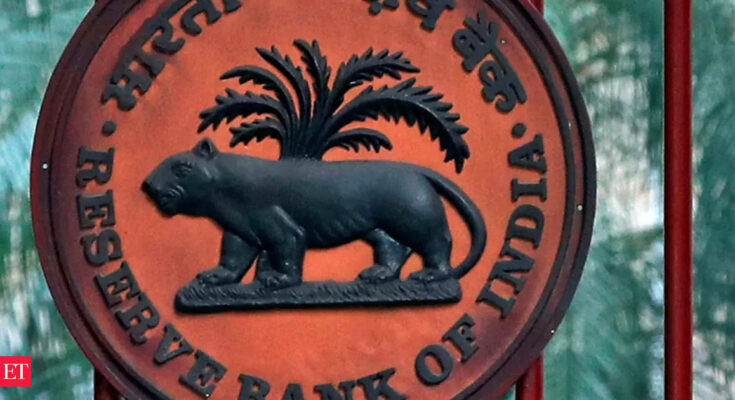Large MNC banks, which serve as custodians offoreign portfolio investors(FPIs) betting on India, have asked theReserve Bank of India(RBI) to consider a tweak in the rule to facilitate same-day settlement of stock trades, better known as T-plus-zero (or, T+0).. They want the banking regulator to enable FPIs to have a mechanism where funds can be organised from banks during the day to buy shares and squared off in evening-an arrangement that would be handy once the shorter settlement cycle of T+0 is extended for institutional trades. In the T+0 cycle, the buyer gets the shares and the seller receives the money on the same day the trade happens.. Indications are that the market regulator Securities & Exchange Board of India (Sebi), wants custodian institutions to be ready for T+0 settlement for FPI and other institutional trades by end December or early January as the Sebi chairperson is believed to be keen on executing this before her term ends in February 2025, two industry persons told ET.. In a T+0 cycle, FPI managers located in different time zones would have to either hold adequate funds in their rupee accounts with banks in India or have the flexibility of intra-day funding. “Several international asset managers do not want to pre-fund their accounts as that could mean accepting lower returns and paying for the hedging cost (to protect against INR depreciation). Instead, they would prefer a system where the banks (typically, thecustodian banks) pay the exchange on their behalf, book forex forward, liquidate the forex contract to convert the dollars into INR once the dollars come in sometime in the evening,” said a banker.. However, since FPIs are disallowed from freely borrowing from local banks under the Foreign Exchange Management Act, this would call for an enabling directive from RBI letting banks issue ‘irrevocable payment commitments’ (IPC) in favour of stock exchange and clearing house on behalf of FPIs doing T+0 trades. Following representations from banks, RBI had in May changed the IPC regulation for T+1 trades. Now, another amendment in the IPC rules is required for T+0 as the settlement would take place well before the dollar is credited to the bank’s nostro account (or, the account that the custodian bank in India holds with a bank abroad), said sources.Under this, funds are not extended like a normal overdraft or intra-day credit line to the borrower. However, the IPC mechanism allows the custodian to release the amount for the trade settlement and recover it after some hours by converting the dollars into INR at the forward rate struck (with another bank or entity) earlier in the day.. According to Rajesh Gandhi, partner, Deloitte, “In order for T+0 to be successful, it is important that issuance of IPCs should be allowed by RBI, similar to the relaxation given for T+1. Once this is done, technically FPIs will be able to pay for purchase of securities on the date of purchase and with T+0 they will also be able to receive sale consideration in foreign currency on the date of sale itself. This will make India one of the first countries to allow pay-in and pay-out on the same day which is a very commendable step by Sebi.”. “We had raised this with the RBI, we would do it again. RBI officials have listened to us, but are yet to give their views. We think an amendment in IPC would be necessary for T+0. We don’t know how many funds would opt for T+0 as it would not be mandatory. But Sebi clearly wants custodians to upgrade their systems to offer the FPIs the choice of T+0 settlement,” said another banker.. Sebi had been pushing through changes – some which have stretched working hours for certain professionals – in enabling quicker movement of funds by FPIs. For instance, some months ago, large accountancy firm who do the bookkeeping for FPIs and handle their tax outgo, were told by Sebi to generate the mandatory ‘confirmation certificate’ overnight for T+1 trades so that FPIs can repatriate funds from stock sale to other international markets the very next day. The accountants send the certificate to banks which need to withhold tax before remitting the money.. “Under T+0, this would be quite strenuous. We need a few hours to calculate. The earnings from stock sale are based on FIFO (first in-first out method). Besides, corporate actions and treaty specifications are factored in. Then, the computation is reviewed by another person. All this takes time. It would be a challenge under T+0 ,” said another person.. (You can now subscribe to our Economic Times WhatsApp channel)
